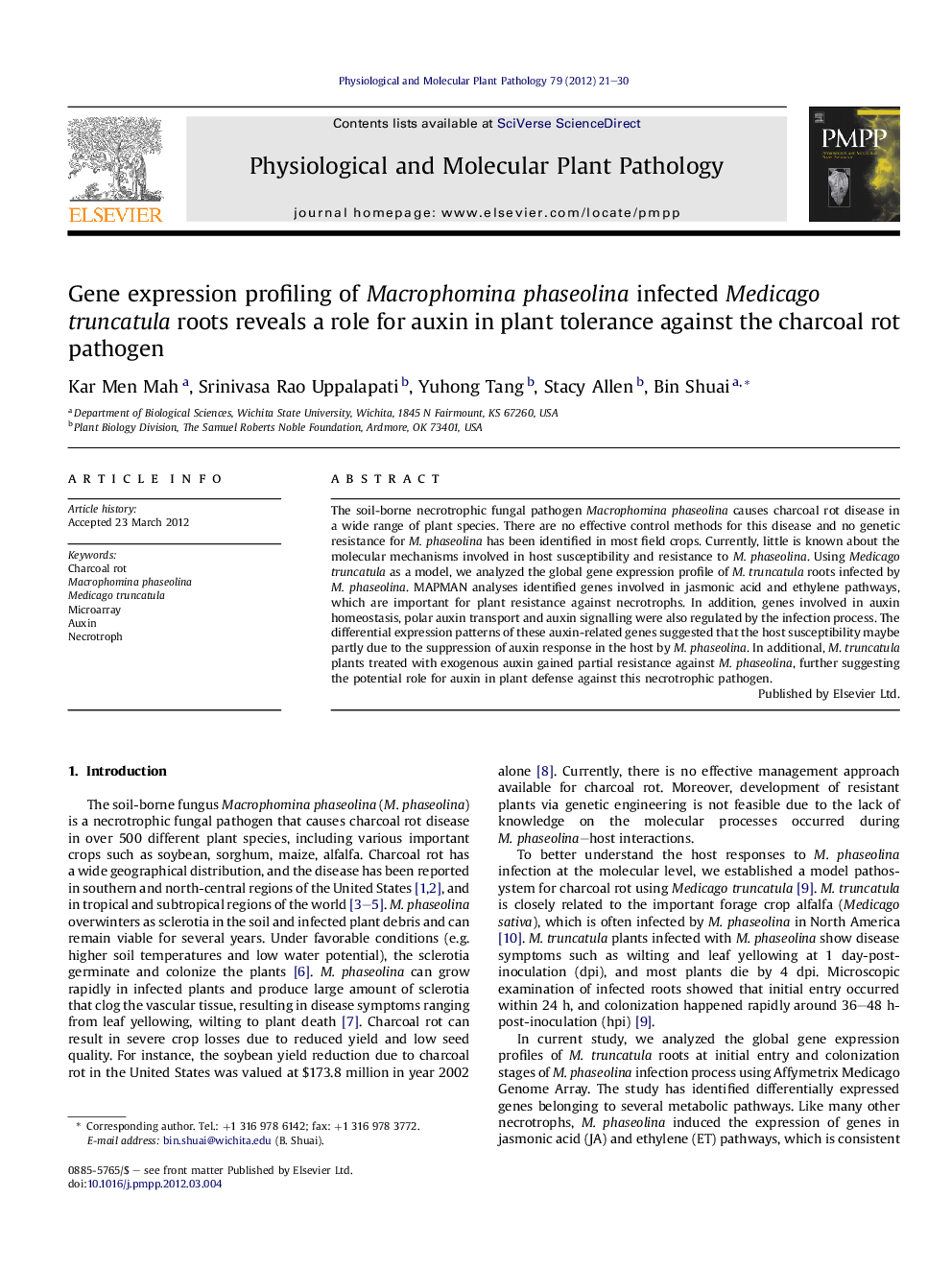| Article ID | Journal | Published Year | Pages | File Type |
|---|---|---|---|---|
| 2836443 | Physiological and Molecular Plant Pathology | 2012 | 10 Pages |
The soil-borne necrotrophic fungal pathogen Macrophomina phaseolina causes charcoal rot disease in a wide range of plant species. There are no effective control methods for this disease and no genetic resistance for M. phaseolina has been identified in most field crops. Currently, little is known about the molecular mechanisms involved in host susceptibility and resistance to M. phaseolina. Using Medicago truncatula as a model, we analyzed the global gene expression profile of M. truncatula roots infected by M. phaseolina. MAPMAN analyses identified genes involved in jasmonic acid and ethylene pathways, which are important for plant resistance against necrotrophs. In addition, genes involved in auxin homeostasis, polar auxin transport and auxin signalling were also regulated by the infection process. The differential expression patterns of these auxin-related genes suggested that the host susceptibility maybe partly due to the suppression of auxin response in the host by M. phaseolina. In additional, M. truncatula plants treated with exogenous auxin gained partial resistance against M. phaseolina, further suggesting the potential role for auxin in plant defense against this necrotrophic pathogen.
► Gene expression profiling of Medicago truncatula infected with Macrophomina phaseolina. ► M. phaseolina modulates the expression of auxin-related genes. ► Auxin induces partial resistance in Medicago plants against M. phaseolina.
